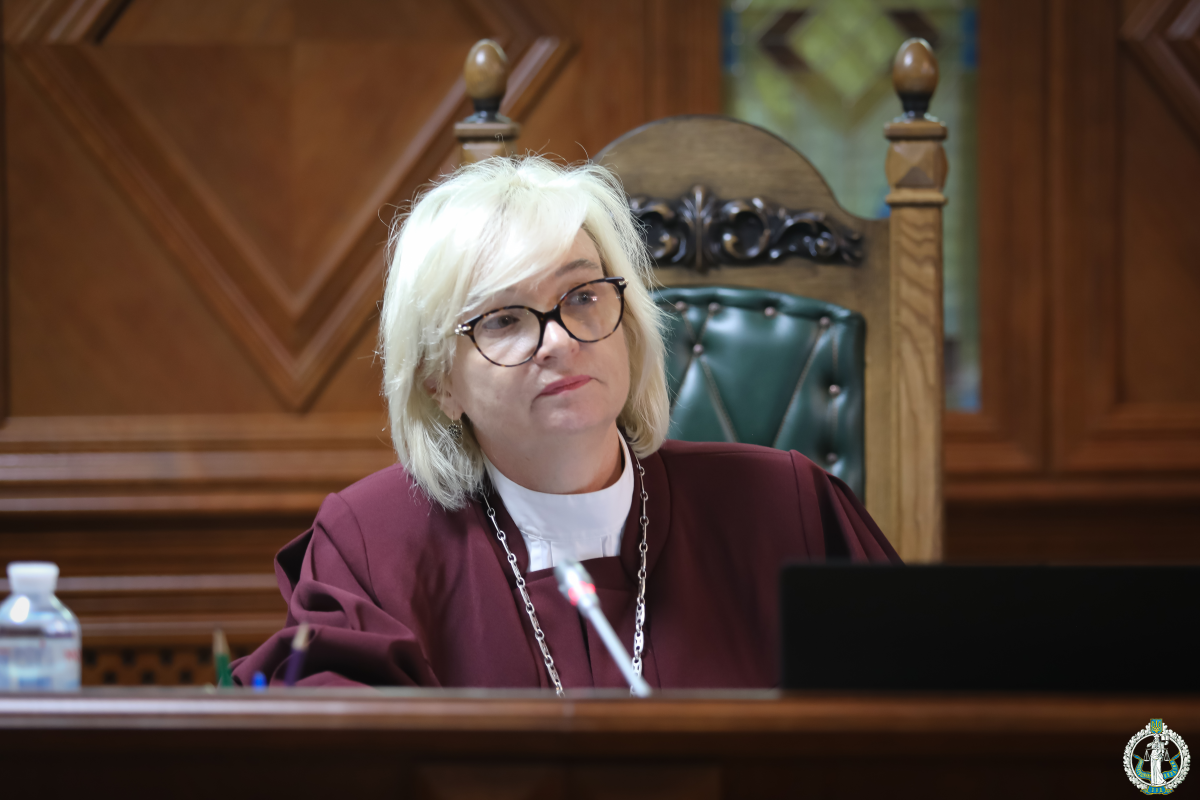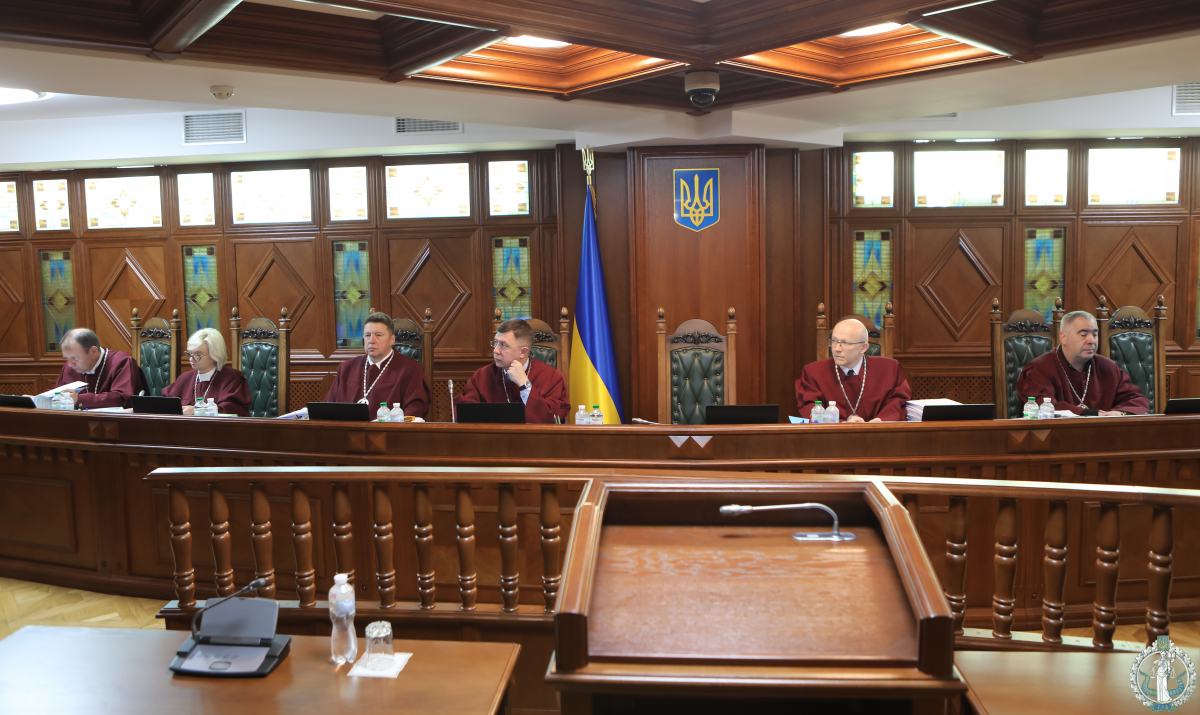The court deliberated the case regarding the constitutionality of the provisions of the Law on the State Budget for 2025 concerning additional payments to unemployed pensioners living in areas evacuated after the Chornobyl disaster
03/09/2025
On September 3, 2025, the Second Senate of the Court deliberated the case upon a constitutional complaint filed by Denysova Svitlana in the public part of the plenary session in the form of written proceedings. During the plenary session, the judge-rapporteur in the case, Galyna Yurovska, outlined the content of the constitutional complaint and the complainant's arguments.
As noted by the judge-rapporteur, the complainant appealed to the Constitutional Court of Ukraine to review the compliance of Article 45 of the Law of Ukraine “On the State Budget of Ukraine for 2025” dated November 19, 2024, No. 4059-IX (hereinafter, the “Law”) with Articles 22.3, 24.1, 24.2, 46.1, 55.1, Article 58.1 of the Constitution of Ukraine (constitutionality).
Article 45 of the Law stipulates: “It is hereby established that in 2025, for the period of martial law in Ukraine, additional payments to unemployed pensioners who permanently reside in the zone of unconditional (mandatory) relocation and in the zone of guaranteed voluntary relocation provided that such persons resided or worked in the zone of unconditional (mandatory) relocation or in the zone of guaranteed voluntary relocation as of April 26, 1986, or in the period from April 26, 1986, to January 1, 1993, in connection with which the person is granted the status of a person affected by the Chornobyl disaster.
The additional payment for living in the specified territories is set at 2,361 hryvnia. Persons who, after the accident at the Chornobyl Nuclear Power Plant (April 26, 1986), independently or in accordance with the procedure established by law, on the instructions of regional state administrations, changed their place of residence outside the zones of unconditional (mandatory) relocation or guaranteed voluntary relocation and subsequently returned to their permanent place of residence in these zones, as well as persons who registered their place of residence or moved to a permanent place of residence in the specified zones after the accident at the Chornobyl Nuclear Power Plant, no additional payment for living in such zones shall be established.
The payment of additional compensation for living in the zone of unconditional (mandatory) relocation and in the zone of guaranteed voluntary relocation to unemployed pensioners shall cease after the person leaves their place of permanent residence in the specified territories and declares/registers their place of residence outside the zones of unconditional (mandatory) relocation zones and guaranteed voluntary relocation zones, as confirmed by information from the Unified State Demographic Register and other state registers. The Pension Fund shall verify and reconcile data with state registers to establish, continue, or terminate payments.
According to Svitlana Denysova , the Constitution of Ukraine does not grant the laws on the State Budget of Ukraine higher legal force over other laws; it is not possible to amend special laws with laws on the State Budget of Ukraine, as this contradicts the legislation. In addition, she believes that the establishment by law of a fixed amount of additional payment for living in the zone of unconditional (mandatory) relocation and in the zone of guaranteed voluntary relocation violates her rights to receive appropriate payments from the state.
The judge-rapporteur also informed that in order to ensure a full and objective deliberation of the case and the delivery of a reasoned decision by the Court, she had sent requests to the Legal Directorate of the Court Secretariat, bodies of state power, and higher education establishments to express their positions on the issues raised in the constitutional complaint.
After examining the case files in the public part of the plenary session, the Court proceeded to the in-camera part to deliver its decision.
A video recording of the session will be available on the Court's official website in the Section “Archive of video broadcasts of sessions”.


